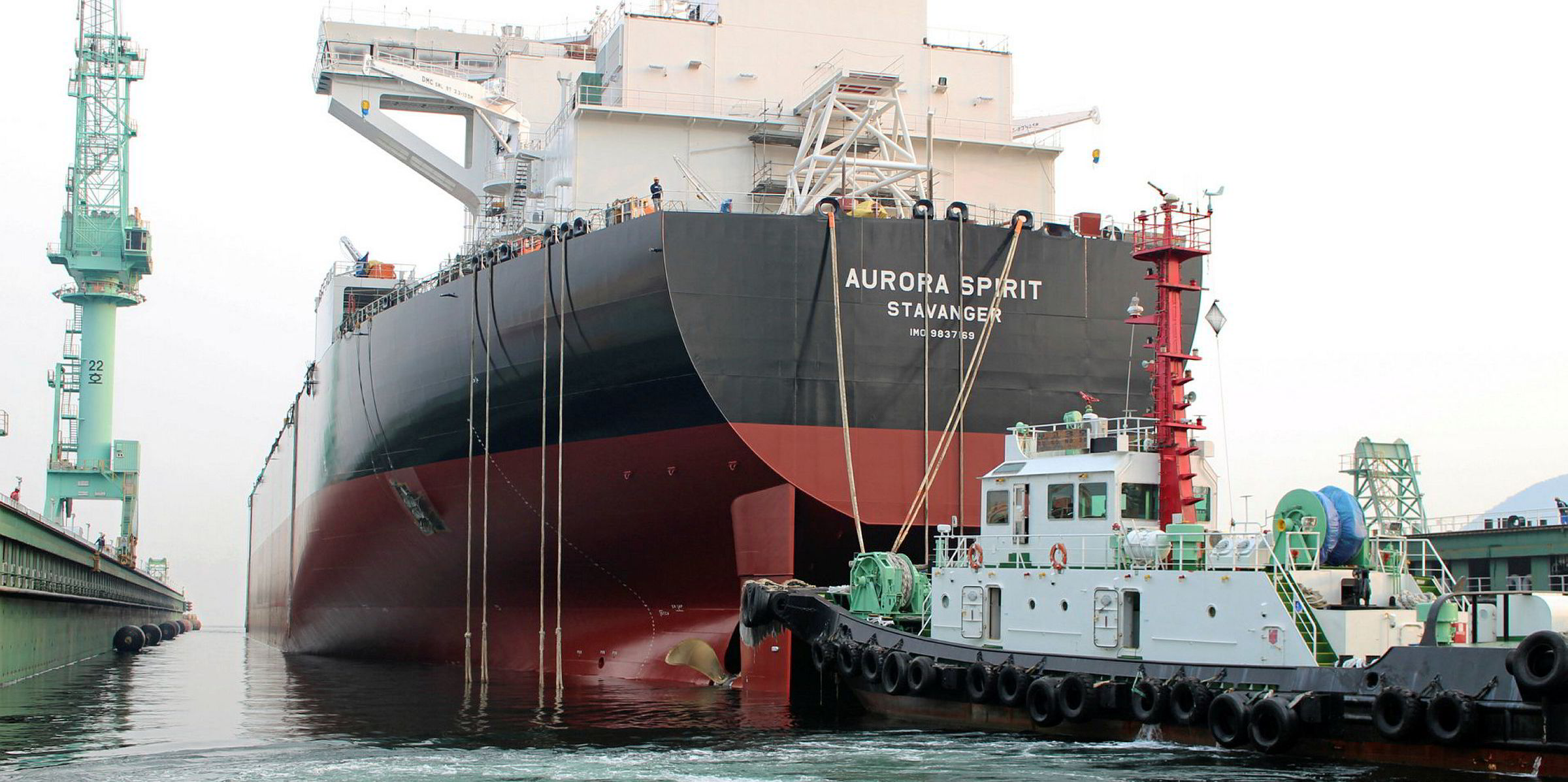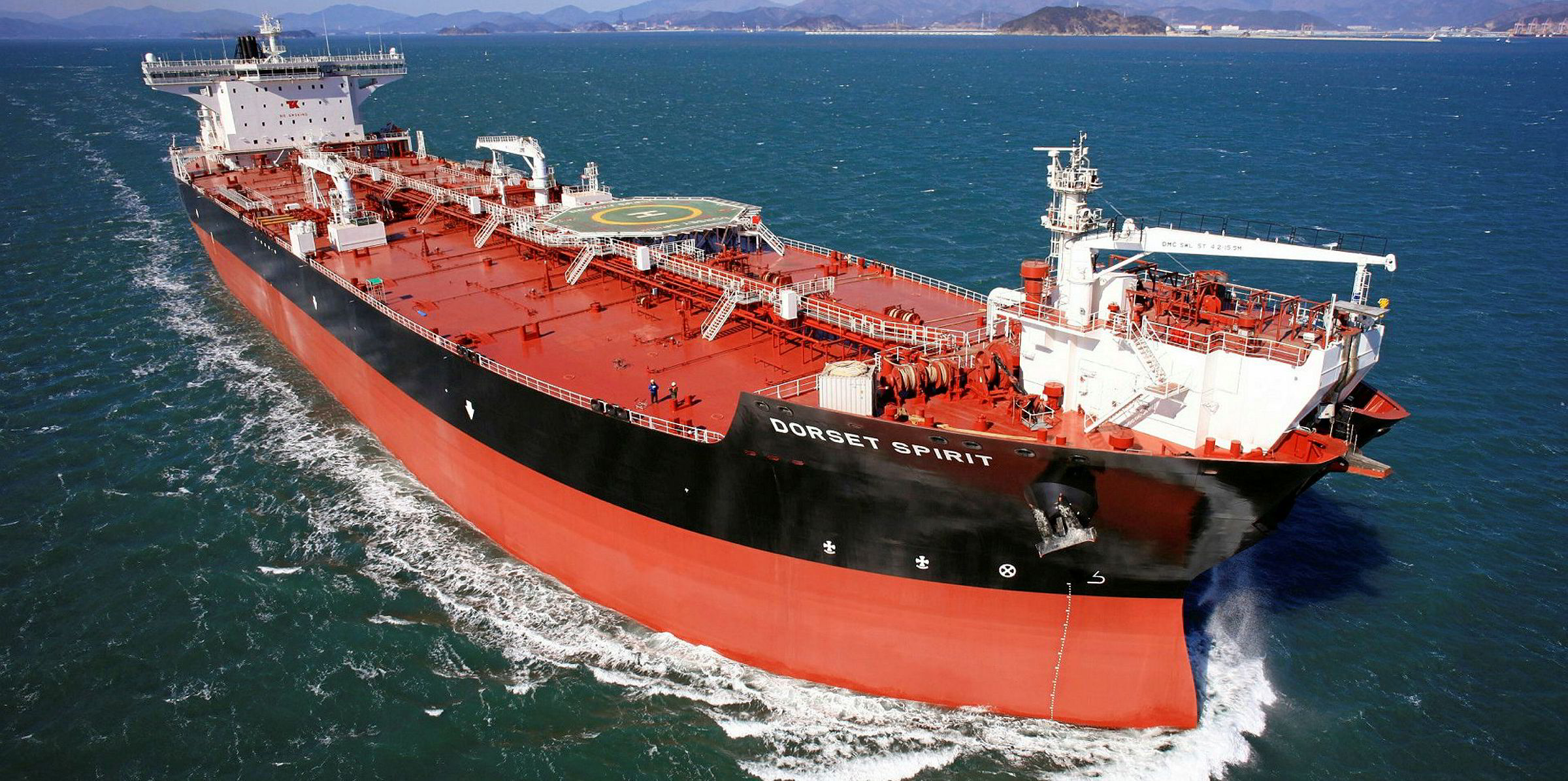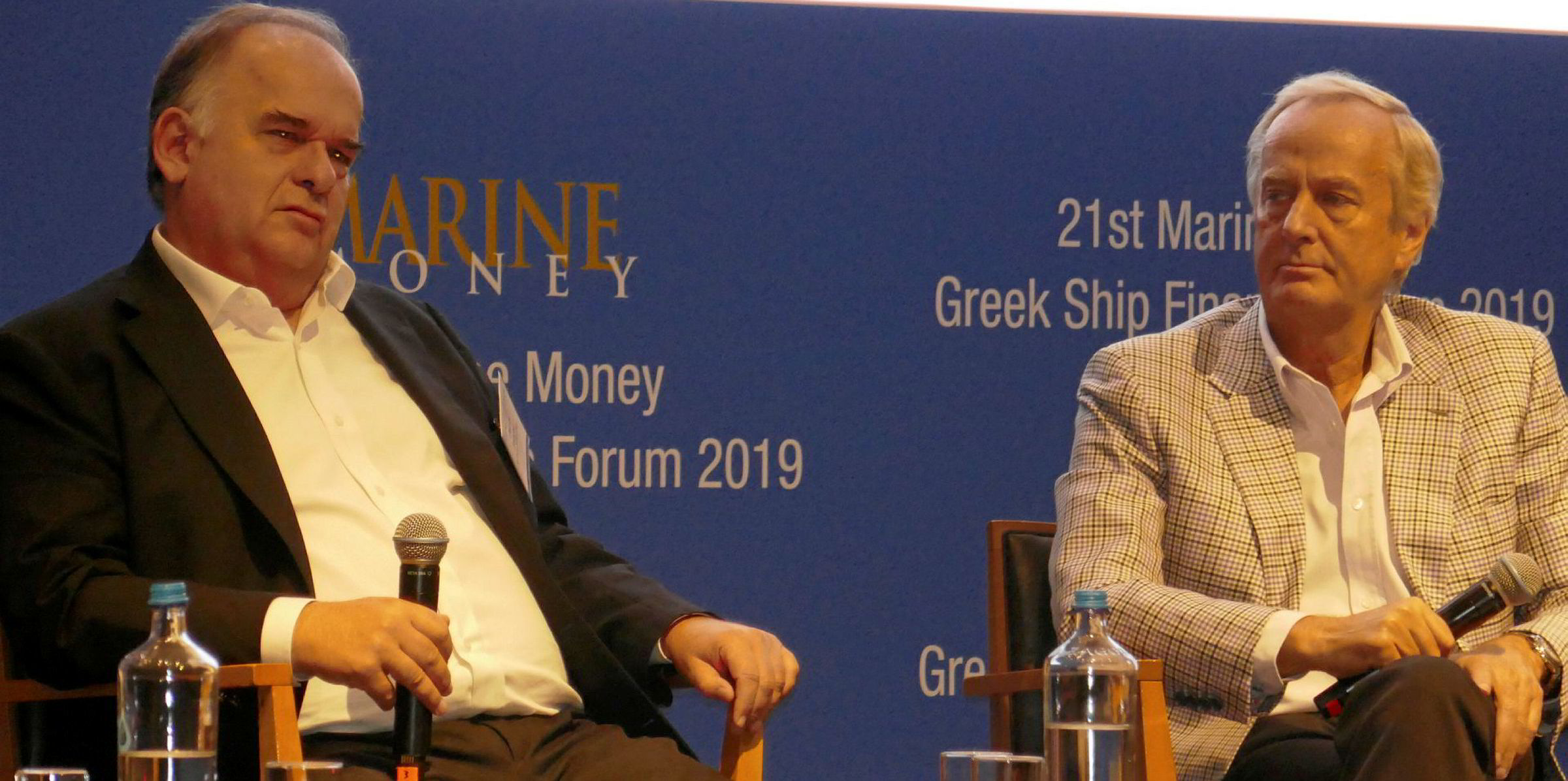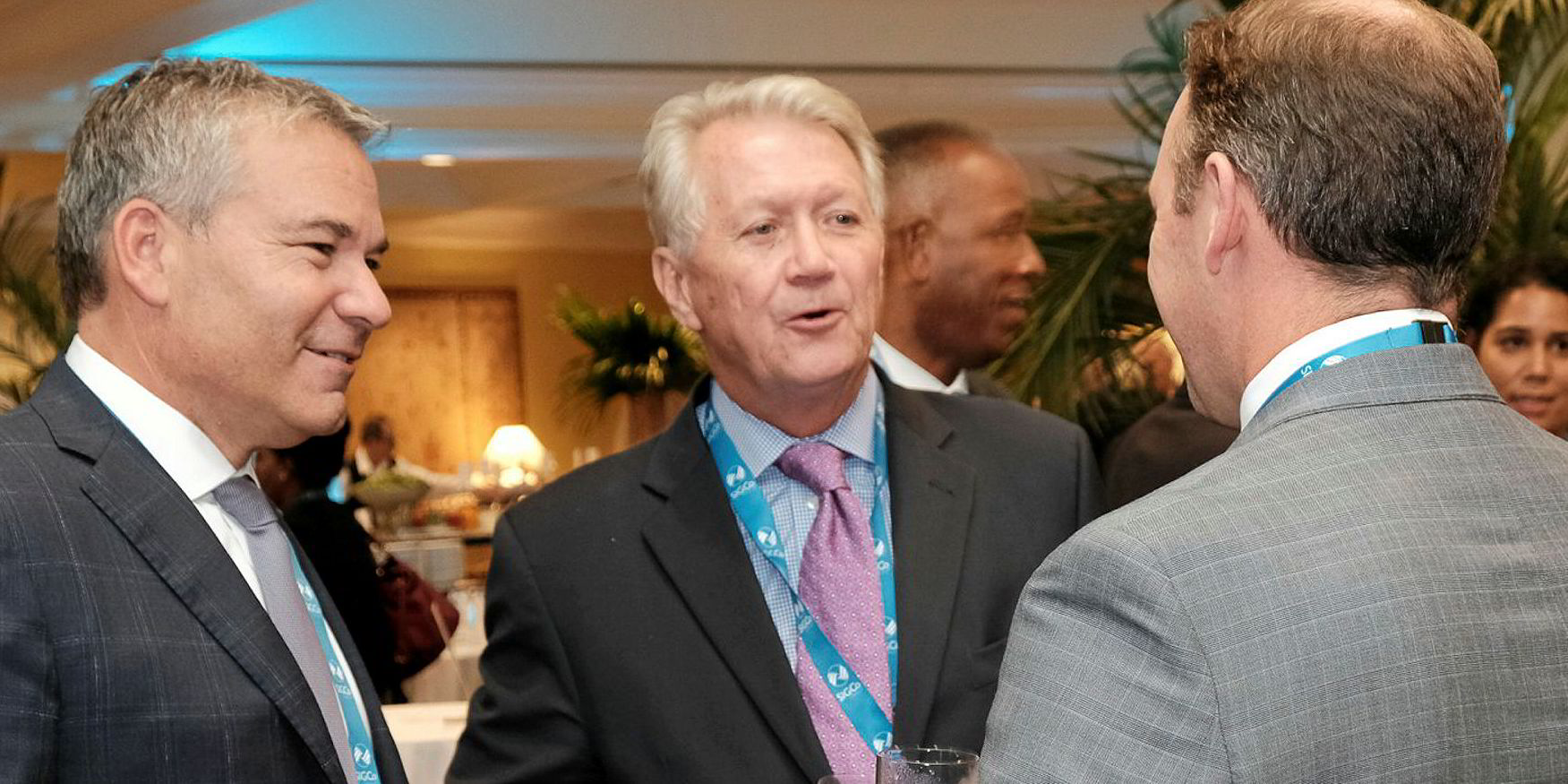Teekay Shuttle Tankers (TST) is challenging reports that its $125m issuance of “green bonds” was less than fully successful because some investors baulked at supporting a carrier of crude oil.
Chief financial officer Jan Rune Steinsland told TradeWinds that despite reports of investor reticence, he considered the effort a clear success.
“We were completely pleased with the outcome,” he said.
“You can always have a lower cost, but this was in line with what the market normally demands.
Good outcome
“If we came home without having been able to issue the bond, obviously we wouldn’t feel satisfied. But that’s not the case and we had a good outcome.”
Hailed as the first Western shipowner to pursue funding through green bonds, which favour projects aimed at “environmental sustainability”, TST announced on 10 October that it had sold $125m in senior unsecured 2024 notes at 650 basis points over the 90-day Libor rate.
However, a report in the Financial Times this week indicated that TST had fallen short of its fundraising target in a market that has been red-hot with oversubscribed deals. Some investors were “skittish” that a company carrying crude cargoes should be designated “green”, resulting in a premium pricing margin.
TST is using the money to partly fund four 130,000-dwt LNG-powered shuttle newbuildings to be delivered by 2021. The eco design is touted to halve carbon dioxide emissions.
Steinsland challenged the notion that TST had sought to raise up to $200m in the deal. The target had been $150m, he insisted.
The $200m figure also listed in offering documents refers to the potential to “top up” proceeds to the higher figure later, should further options arise. That prospect remains in play, he said.
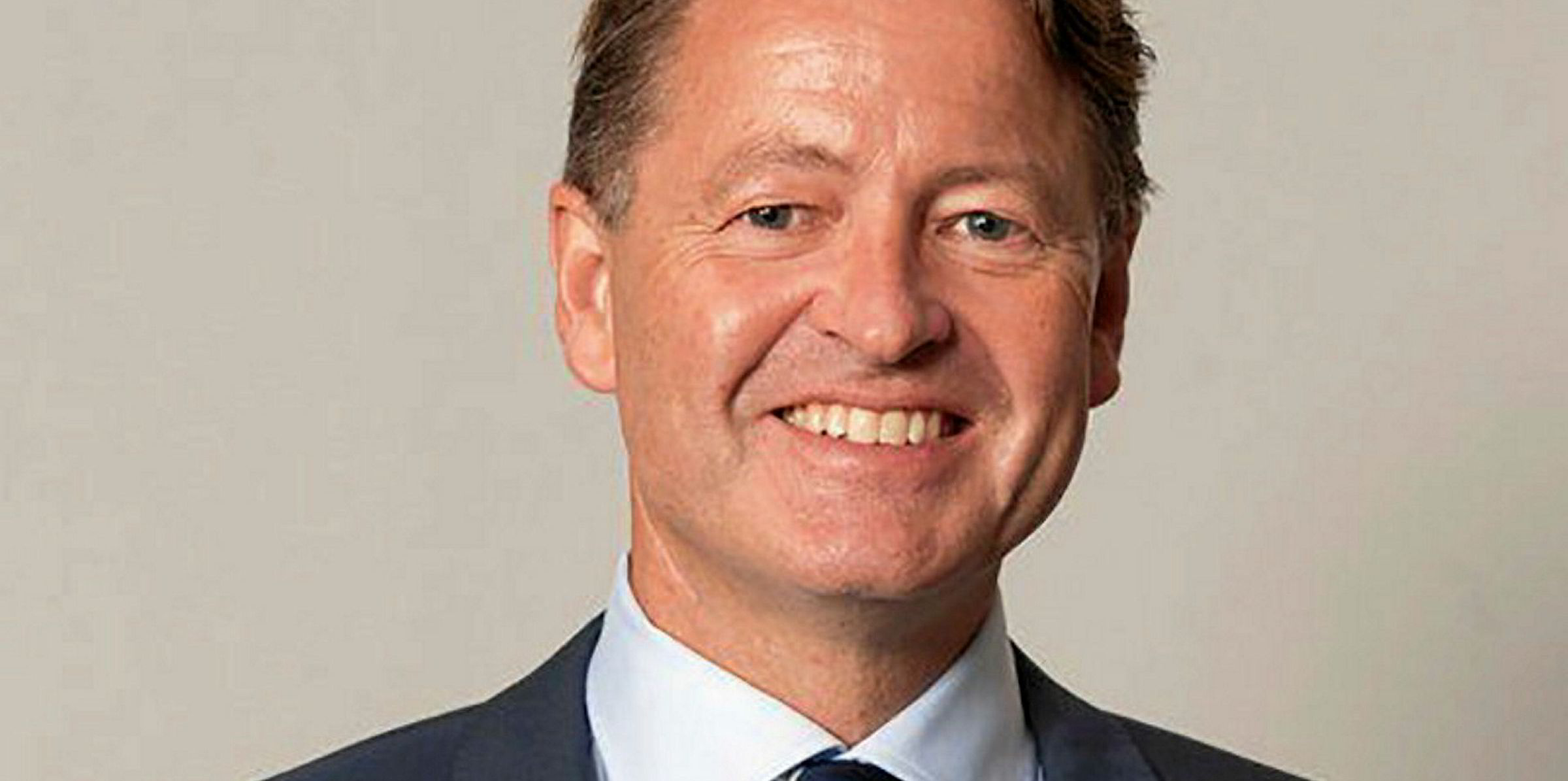
“Therefore $125m is not a bad place to end up,” Steinsland added.
“You always have an [investor] book and you evaluate it and you have to draw a line somewhere. We decided to draw that line and leave some demand on the table and not have the secondhand market throwing the notes back.”
If some investors did baulk at the notion that a crude carrier can be green, they did not directly communicate that to the company in a roadshow that called on Bergen, Helsinki, Stockholm and Oslo.
“We met no investors who turned down the deal because it was not green enough,” Steinsland said.
“We did have a lot of good discussion about green bonds in a brown industry. We had much less feedback that ‘you can’t be green in that case’ than we might have expected.”
TST also had contact with what he called “traditional high-yield investors” who said they would not have taken meetings if not for the green component of the project.
Still, he conceded, “we didn’t get an unlimited amount of investment from green-only funds that potentially could have brought the coupon down to a level below what we’re used to seeing”.
TST’s experience came as industry statesmen have noted at recent conferences and appearances that the definition of green is quickly changing and dependent on the beholder.
“When open-loop scrubbers first came out, some of the banks gave green loans for scrubbers because they wanted to be called sustainable lending banks,” Team Tankers chairman Morten Arntzen said at this month’s TradeWinds International Shipping Forum in Bermuda.
“But nobody puts open-loop scrubbers on their ships to clean the environment. They do it to capture a fuel spread for a period of time.”
Veteran lender Michael Parker, chairman of shipping and logistics at Citigroup, had similar words of caution.
“We expect to see the first real rules about bond issuance for shipping emerge early in the next year,” Parker said at Tsakos Energy Navigation’s annual strategy meeting in Athens.
“Anyone calling a scrubber green will be very embarrassed when we come out with what truly is green.”
TST is far from using scrubbers.
The E-Shuttle newbuildings will operate on LNG as the primary fuel, and a mixture of LNG and recovered volatile organic compounds as secondary fuel. They have battery packs for flexible power distribution and blackout prevention.
But still they carry oil. Hence the debate.
Self-defeating?
By one view, providing green funding to a company that carries a product that contributes to world carbon emissions is illogical and self-defeating.
By the other, use of fossil fuels for energy will be a reality and probably a necessity for decades to come, so denying funding to those opting to carry cargoes in the cleanest possible way is illogical and self-defeating.
“I think people realise crude oil will be around for a long time,” Steinsland said. “This is about the most environmentally efficient way of carrying it.
“Our reduction in emissions is very significant. We feel like we got traction for our concept.”
